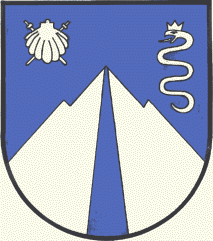Gallizien: Difference between revisions
Jump to navigation
Jump to search
Knorrepoes (talk | contribs) m (Text replace - "|}<seo title="Wappen von Österreich" />" to "|}<seo title="|}<seo title="Wappen, Gemeindewappen, Stadtwappen, Marktwappen, Österreich" />" />") |
Knorrepoes (talk | contribs) m (Text replace - "Österreich" />" />" to "Österreich" />") |
||
| Line 3: | Line 3: | ||
|width="70%" align="center" |'''Heraldry of the World<br>Civic heraldry of [[Austria]] - [[Austria|Österreichische Gemeindewappen]]''' | |width="70%" align="center" |'''Heraldry of the World<br>Civic heraldry of [[Austria]] - [[Austria|Österreichische Gemeindewappen]]''' | ||
|width="15%"|[[File:Austria.jpg|50 px|right]] | |width="15%"|[[File:Austria.jpg|50 px|right]] | ||
|}<seo title="|}<seo title="Wappen, Gemeindewappen, Stadtwappen, Marktwappen, Österreich | |}<seo title="|}<seo title="Wappen, Gemeindewappen, Stadtwappen, Marktwappen, Österreich" /> | ||
'''GALLIZIEN''' | '''GALLIZIEN''' | ||
Revision as of 17:31, 12 January 2014
| Heraldry of the World Civic heraldry of Austria - Österreichische Gemeindewappen |
GALLIZIEN
State : Kärnten
District : Völkermarkt
Origin/meaning
Thea rms wer officially granted on January 10, 1986.
The village changed its name, after the local church was gifted with relics of the Holy Apostle St. James the Elder (Jacobus Maior), who is buried at Santiago de Compostela in Galicia (north-western Spain). In the Middle Ages, Santiago was a place of pilgrimage and has remained so to this day. Hence the escallop and the pilgrim's staffs in the arms.
The main charge of the arms symbolize the Wildenstein falls (52 metres high). The crowned snake is taken from local folklore.
Literature : Image provided by Karl Palfrader (k.palfrader@aon.at)

